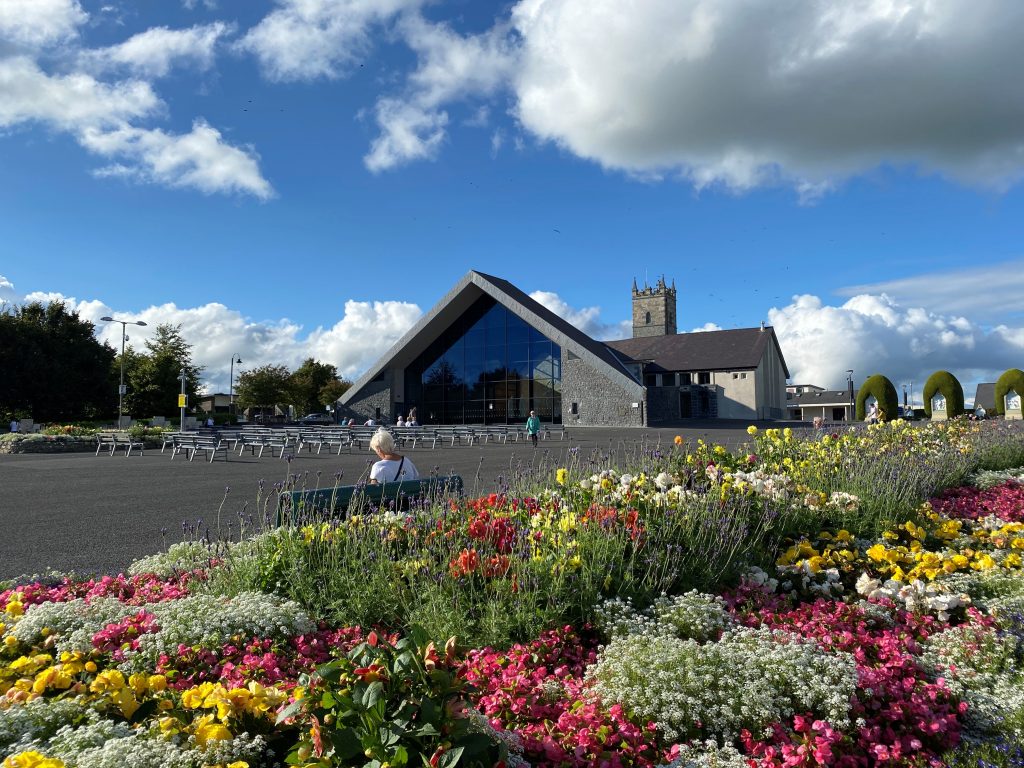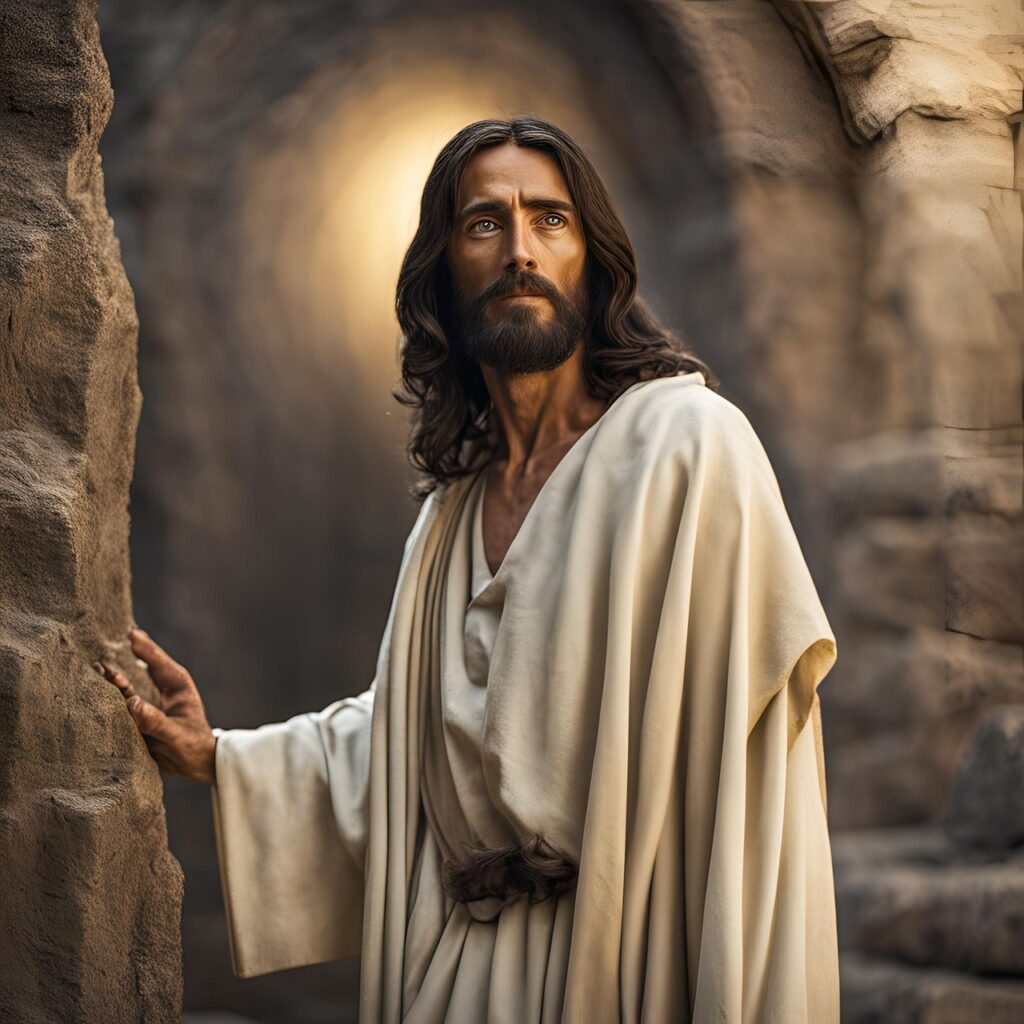Knock Shrine Holds Virtual Pilgrimage on May 2
'The Parable of the Vine and the Branches challenges our contemporary Western understanding of individualism'– Archbishop Neary

The Knock Shrine held a virtual pilgrimage on May 2 for the Archdiocese of Tuam, Diocese of Waterford and Lismore, Catholic Doctors Association, and the Irish Guild of Catholic Nurses.
Pope Francis on Friday, March 19, 2021, released a video for the Irish faithful to mark the elevation of the National Sanctuary of Our Lady of Knock to the status of International Marian and Eucharistic Shrine.
Here is the homily presented at the event by Archbishop Michael Neary, Archbishop of Tuam, who is the custodian of the Marian Shrine.
******
Loved in spite of fragility
You will recall that at the Last Supper as Jesus was surrounded by the twelve disciples there was a feeling of foreboding in that upper room. There was mention of one who would betray him but the twelve were in suspense and didn’t know to whom he was referring. Things seem to be falling asunder. Later that night all the disciples would abandon Jesus, Peter their leader would distance himself from him and deny him and one of them would become a traitor. In the face of all of this Jesus speaks about unity and dependence. Jesus is about to depart and yet feels very close to his disciples. He loved them in spite of their fragility, fear, and weakness. Jesus captures those sentiments in the parable of the Vine and the Branches in today’s Gospel which comes at the end of the Last Supper. Indeed this parable helps to explain and draw out the meaning of the Eucharist.
A reassuring parable
In today’s world, people make heroic efforts in order to become aware of their roots, to get some appreciation of the people who went before them, from whom they are descended, and the place of their origin. This provides them with a sense of identity and gives them a better understanding of themselves and a certain reassurance. The parable in today’s Gospel then is reassuring, reminding the disciples on that faithful night and reminding us today that we are connected with Christ who provides us with life and sustenance. While this image is comforting it is at the same time challenging for us. Jesus reminds and invites us to “remain” in him. This is an urgent requirement and highlights the consequences of not maintaining our connection and our relationship to Christ which will result in we becoming withered like dead branches which no longer draw life from the vine.
Pruning for growth
This Gospel speaks of the pruning which takes place in order to ensure that new life can grow. Just as the vine is pruned by the vinedresser so God through his word brings about certain challenges for us, thereby bringing about a discipline and enabling us to recognize our dependence on God.
A challenging parable for our time
This parable challenges our contemporary Western understanding of individualism. The efficacy of the community derives solely from its relationship to Jesus. There is no such thing as a solitary Christian. Every Christian is linked to Christ and to other Christians. Closeness and unity are underlined.
Christ needs us too
There is another and frequently overlooked dimension of this parable. It recognizes that the fruit is produced on the branches. The implication is that if we are not united to Christ and we wither there will be no fruit forthcoming. This highlights the fact that Christ needs us and depends on us to produce fruit. So there is a mutual interdependence between Christ and ourselves. Just as there is between the vine and the branches. I mentioned already that the Eucharist is very much in the background of the parable of the vine in today’s Gospel.
Centrality of the Eucharist and interdependence
As our congregations have been deprived of gathering for the Mass and receiving the Eucharist, we know the sacrifice this has meant for so many people. As we celebrate our Diocesan Pilgrimage to Knock, which now has been designated as an International Eucharistic and Marian Shrine, there is something very appropriate about the relevance of today’s reading. All of us are very conscious of the centrality of the Eucharist here at Knock from the time of the Apparition and the appearance of the Lamb of God on the altar of sacrifice with the cross in the background. Furthermore, as we move into the month of Our Lady, the month of May we recognize the way in which dependence is underlined. Jesus was dependent on Mary, his Mother, in order to enter our world. God was dependent on Mary to accept the invitation to become the Mother of Jesus. We depend on Jesus for support, and encouragement as we cope with difficult situations in our lives. There is also a sense in which the Lord is dependent on us to support each other and make others aware of the Lord’s availability, his presence, and his love in their lives.
The branch cannot bear fruit all by itself
We know in life itself how much support and encouragement mean, particularly if we are in situations of doubt and puzzlement. It may be a parent, a teacher, a friend, a religious or priest who comes to the rescue, senses the situation in which we find ourselves and encourages and enables us to undertake and to accomplish tasks which we would be reluctant to take on. We are more dependent on others than we might be inclined to admit. While today we place a high value on independence and yet we recognize how very dependent we can be on the support and recommendation of others. In today’s Gospel Jesus speaks of the relationship between the vine and the branches. In doing so he highlights our dependence on God. The branch cannot bear fruit all by itself. We need His support, example, correction, and encouragement at different stages in our lives.
Related

Reflection by Bishop Enrique Díaz: The Lord’s mercy is eternal. Alleluia
Enrique Díaz
27 April, 2025
5 min

After Eight Days Jesus Arrived: Commentary by Fr. Jorge Miró
Jorge Miró
26 April, 2025
3 min

The Perspectivas del Trabajo Foundation is founded with the aim of promoting virtues for professional development
Exaudi Staff
25 April, 2025
2 min

Reflection by Bishop Enrique Díaz: Alleluia, alleluia
Enrique Díaz
20 April, 2025
5 min
 (EN)
(EN)
 (ES)
(ES)
 (IT)
(IT)

